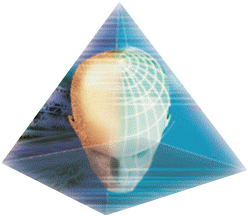Funding Programmes that fit for you
The following funding programme(s) is/are listed based on your choice. Please click the button below if you want to choose again.
 Innovation and Technology CommissionITCThe Government of the Hong Kong Special Administrative Region
Innovation and Technology CommissionITCThe Government of the Hong Kong Special Administrative Region Innovation and Technology FundInnovation and Technology CommissionITFITCThe Government of the Hong Kong Special Administrative Region
Innovation and Technology FundInnovation and Technology CommissionITFITCThe Government of the Hong Kong Special Administrative Region
The following funding programme(s) is/are listed based on your choice. Please click the button below if you want to choose again.
R&D Centres refer to -
Designated local public research institutes refer to local universities (including all University Grants Committee-funded institutions), self-financing degree-awarding institutions registered under the Post-Secondary Colleges Ordinance (Cap. 320), the Hong Kong Productivity Council, the Vocational Training Council, the Clothing Industry Training Authority and the Hong Kong Institute of Biotechnology.
A government subvented organisation means an organisation that receives subvention from the Government on a recurrent basis. The subvention contributes towards the organisation's operational expenses, in exchange for its service to the public. The recurrent subvention may account for the bulk of the organisation's income or may just be a token contribution/sponsorship forming a small percentage of the organisation's total income.
The designated local public research institutes for Partnership projects include:
Graduate tenants refer to graduates from the incubation programmes who have then become tenants of HKSTPC or Cyberport.
This refers to those that are among the top 100 institutions for related subjects in the latest publication of world university ranking tables, i.e. the Quacquarelli Symonds (QS) World University Rankings, Academic Ranking of World Universities (ARWU), Times Higher Education (THE) World University Rankings or U.S. News & World Report (USNWR) Best Global Universities Rankings.
For projects falling under the Automotive Platforms and Application Systems R&D Centre (APAS), they will be solicited by APAS, processed by the ITC, vetted by the Innovation and Technology Fund Research Projects Assessment Panel, and monitored by APAS.
The six universities are City University of Hong Kong, Hong Kong Baptist University, The Chinese University of Hong Kong, The Hong Kong Polytechnic University, The Hong Kong University of Science and Technology and The University of Hong Kong.
The application deadline refers to the date set for the universities to forward their recommendations to the Innovation and Technology Commission, and such date normally falls in February every year.
The three-year period should count consecutively from the first year that a start-up is approved for TSSSU funding. For example, if a start-up was first approved for funding in 2017-18 (Year one) and only applied for continued funding in 2019-20 (Year three), it will not be eligible for seeking further funding in 2020-21 (Year four).
R&D projects funded by the ITF include projects funded under the Innovation and Technology Support Programme (ITSP), the Guangdong-Hong Kong Technology Cooperation Funding Scheme (TCFS), the Mainland-Hong Kong Joint Funding Scheme (MHKJFS), the Partnership Research Programme (PRP), the Matching Grant for Joint Research Scheme (UIM) of the University-Industry Collaboration Programme (UICP), the Enterprise Support Scheme (ESS), and the Midstream Research Programme for Universities (MRP), as well as R&D projects undertaken by research centres and laboratories in the research clusters of the InnoHK.
A government subvented organisation means an organisation that receives any grant towards its operational expenses from any government on a recurrent basis in exchange for its services to the public. The recurrent grant may account for the bulk of the organisation's income or may just be a token contribution/sponsorship forming a small percentage of the organisation's total income.
The following programmes/schemes are supported:
STEM refers to the academic disciplines of Science, Technology, Engineering and Mathematics.
According to the Education Bureau, holders of the following documents are classified as local students –
The student interns and the participating employers shall conform in all respects with all legislation (including the Law of the People's Republic of China on Safeguarding National Security in the Hong Kong Special Administrative Region), regulations and by-laws of any applicable jurisdiction in carrying out the internship duties or the related activities.
The employers in Hong Kong should also observe the relevant requirements under the Minimum Wages Ordinance (Cap. 608). Further information is available at the website of the Labour Department.
Non-local students are only allowed to enrol in local internships under the Scheme.
A government subvented organisation means an organisation that receives grant from the government on a recurrent basis. The grant contributes towards the organisation's operational expenses, in exchange of its service to the public. The recurrent grant may account for the bulk of the organisation's income or may just be a token contribution/sponsorship forming a small percentage of the organisation's total income.
For the purpose of calculating allowance under the Scheme, one month has 30 days.
Private investment should come from independent third parties including venture capitalists, angel funds, private companies or individuals in the form of cash contribution received in return of shareholding in the start-ups.
For the first year of TSSSU+ implementation (i.e. 2023-24), ITC will accept a longer recognised matching period from 1 April 2022 to 30 September 2023. For subsequent years, the recognised matching period refers to the Government financial year immediately before the TSSSU+ reimbursable period. For example, for start-up which would like to have its expenses in 2024-25 be funded under TSSSU+, the recognised matching period for receiving private investment should be 2023-24 (i.e. 1 April 2023 to 31 March 2024).
The three-year period should count consecutively from the first year that a start-up is approved for TSSSU-O or TSSSU+ funding. If a start-up is first approved for funding in 2023-24 (Year One) and only applies for continued funding in 2025-26 (Year Three), it will not be eligible for seeking further funding in 2026-27 (Year Four).
Covers a wide range of technology areas in engineering discipline, including net-zero electricity generation, energy saving, green building, green transport and carbon audit.
Research and development of biologics (such as peptides, proteins or antibodies) and cell therapy technologies to modulate immune system for human disease treatment purposes, but exclude drug target identification and drug screening.
STEM refers to the academic disciplines of Science, Technology, Engineering and Mathematics.
The student interns and the participating employers shall conform in all respects with all legislation (including the Law of the People's Republic of China on Safeguarding National Security in the Hong Kong Special Administrative Region), regulations and by-laws of any applicable jurisdiction in carrying out the internship duties or the related activities.
The student interns and the participating employers shall conform in all respects with all legislation (including the Law of the People's Republic of China on Safeguarding National Security in the Hong Kong Special Administrative Region), regulations and by-laws of any applicable jurisdiction in carrying out the internship duties or the related activities.
The Government may at any time and with immediate effect, including through the respective participating institution, revoke an approved participation in the Scheme and the related reimbursement claimed under the Scheme, withhold disbursement of allowance under the Scheme, debar relevant parties' participation in the Scheme and require refund of any funding disbursed under the Scheme to ITC on occurrence of any of the following events:
According to the Education Bureau, holders of the following documents are classified as local students:
Non-local students studying in the local campuses of participating universities and all students studying in universities of other places (including the branch campuses in the GBA of any local universities) are only allowed to enrol in internships in Hong Kong under the Scheme.
Local universities refer to the degree-awarding higher education institutions in Hong Kong at https://www.edb.gov.hk/en/edu-system/postsecondary/local-higher-edu/institutions/index.html
Non-local universities should be among the top 250 universities for STEM subjects in the latest publication of any of the following world university ranking tables:
The employers in Hong Kong should also observe the relevant requirements under the Minimum Wages Ordinance (Cap. 608). Further information is available at the website of the Labour Department.
For the purpose of calculating allowance under the Scheme, one month has 30 days.
The six universities are City University of Hong Kong, Hong Kong Baptist University, The Chinese University of Hong Kong, The Hong Kong Polytechnic University, The Hong Kong University of Science and Technology and The University of Hong Kong.
The application deadline refers to the date set for the universities to forward their recommendations to the Innovation and Technology Commission, and such date normally falls in mid-January every year.
Private investment should come from independent third parties including venture capitalists, angel funds, private companies or individuals in the form of cash contribution received in return of shareholding in the start-ups.
The recognised matching period refers to the Government financial year immediately before the TSSSU+ reimbursable period. For example, for start-up which would like to have its expenses in 2025-26 be funded under TSSSU+, the recognised matching period for receiving private investment should be 2024-25 (i.e. 1 April 2024 to 31 March 2025).
The three-year period should count consecutively from the first year that a start-up is approved for TSSSU-O or TSSSU+ funding. If a start-up is first approved for funding in 2024-25 (Year One) and only applies for continued funding in 2026-27 (Year Three), it will not be eligible for seeking further funding in 2027-28 (Year Four).
STEM refers to the academic disciplines of Science, Technology, Engineering and Mathematics.
The student interns and the participating employers shall conform in all respects with all legislation (including the Law of the People's Republic of China on Safeguarding National Security in the Hong Kong Special Administrative Region), regulations and by-laws of any applicable jurisdiction in carrying out the internship duties or the related activities.
The Government may at any time and with immediate effect, including through the respective participating institution, revoke an approved participation in the Scheme and the related reimbursement claimed under the Scheme, withhold disbursement of allowance under the Scheme, debar relevant parties' participation in the Scheme and require refund of any funding disbursed under the Scheme to ITC on occurrence of any of the following events:
According to the Education Bureau, holders of the following documents are classified as local students:
Non-local students studying in the local campuses of participating universities and all students studying in universities of other places (including the branch campuses in the GBA of any local universities) are only allowed to enrol in internships in Hong Kong under the Scheme.
Local universities refer to the degree-awarding higher education institutions in Hong Kong at https://www.edb.gov.hk/en/edu-system/postsecondary/local-higher-edu/institutions/index.html
Non-local universities should be among the top 250 universities for STEM subjects in the latest publication of any of the following world university ranking tables:
The employers in Hong Kong should also observe the relevant requirements under the Minimum Wages Ordinance (Cap. 608). Further information is available at the website of the Labour Department.
For the purpose of calculating allowance under the Scheme, one month has 30 days.
Starting from 1 April 2025, APAS (formerly Automotive Platforms and Application Systems R&D Centre) is renamed as Center of Advanced Power and Autonomous Systems and fully integrated as a business division under the Hong Kong Productivity Council (HKPC).
